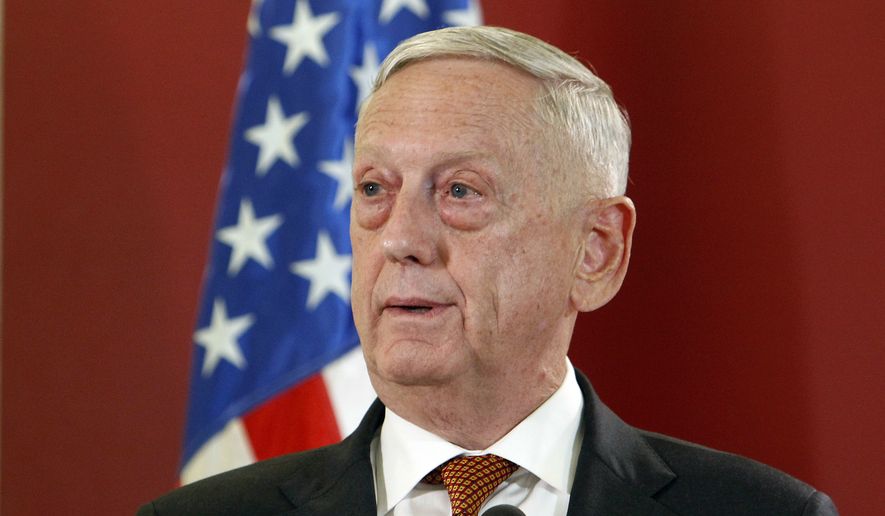Former Secretary of Defense James N. Mattis said he “did as well as I could for as long as I could” in the Trump administration but saw support of U.S. allies eroding, according to an excerpt of his new book “Call Sign Chaos: Learning to Lead” that was published Wednesday in The Wall Street Journal.
“Using every skill I had learned during my decades as a Marine, I did as well as I could for as long as I could,” Mr. Mattis, a retired general who left the administration last winter, wrote.
“When my concrete solutions and strategic advice, especially keeping faith with our allies, no longer resonated, it was time to resign, despite the limitless joy I felt serving alongside our troops in defense of our Constitution,” Mr. Mattis said.
Mr. Mattis continued to deride President Trump’s leadership and interactions with other countries in the world.
“At this time, we can see storm clouds gathering,” Mr. Mattis added. “A polemicist’s role is not sufficient for a leader. A leader must display strategic acumen that incorporates respect for those nations that have stood with us when trouble loomed. Returning to a strategic stance that includes the interests of as many nations as we can make common cause with, we can better deal with this imperfect world we occupy together.”
“Absent this, we will occupy an increasingly lonely position, one that puts us at increasing risk in the world,” he said.
Mr. Mattis warned that “democracy is an experiment” and could be jeopardized if the U.S. continues its “tribalism.”
“Unlike in the past, where we were unified and drew in allies, currently our own commons seems to be breaking apart,” he said.
“What concerns me most as a military man is not our external adversaries; it is our internal divisiveness. We are dividing into hostile tribes cheering against each other, fueled by emotion and a mutual disdain that jeopardizes our future, instead of rediscovering our common ground and finding solutions,” Mr. Mattis wrote.
“All Americans need to recognize that our democracy is an experiment — and one that can be reversed,” he added. “We all know that we’re better than our current politics. Tribalism must not be allowed to destroy our experiment.”
Mr. Mattis announced his resignation in December after the president’s decision to fully withdrawal all U.S. troops from Syria, declaring that the Islamic State terror group has been defeated.
Mr. Mattis vehemently disagreed with the move and articulated broader concerns with Mr. Trump’s worldview and foreign policy approach in his resignation letter.
He stayed on until the end of February to ensure a smooth transition at the Pentagon before handing the reins to then-acting Secretary of Defense Patrick M. Shanahan, who also later resigned. Mark T. Esper is the current defense secretary.
• Gabriella Muñoz contributed to this article.
• Bailey Vogt can be reached at bvogt@washingtontimes.com.




Please read our comment policy before commenting.